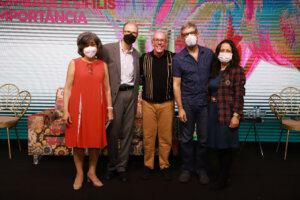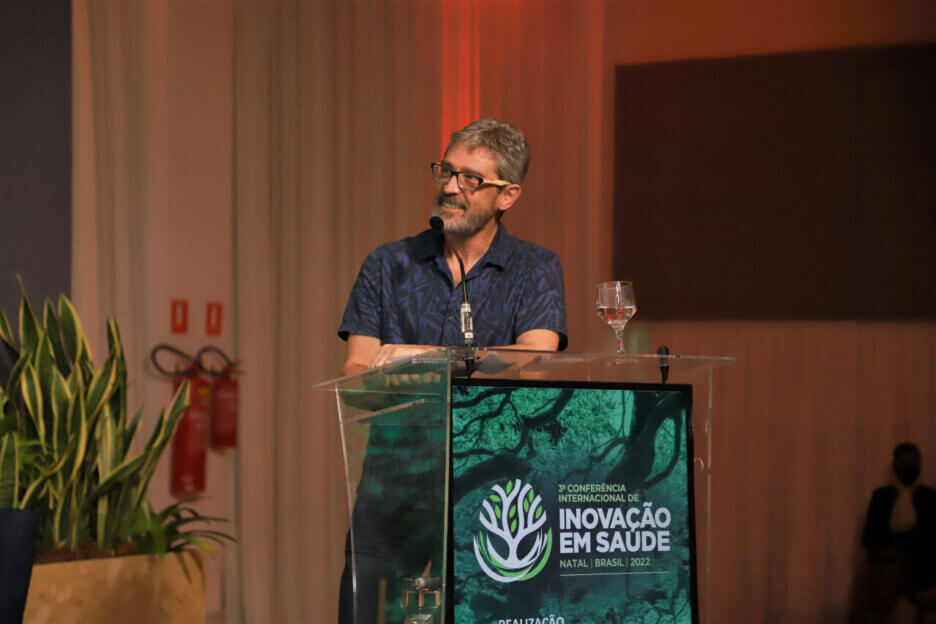By Gabriel Mascena (Ascom/LAIS)
Focused on the role of education as a collaborative and liberating tool, the lecture “Education in Health: education as an inducer of the health system”, given by professor Ricardo Ceccim, coordinator of the Center for Education, Evaluation, and Pedagogical Production in Health (EducaSaúde), marked the afternoon of another day in the 3rd International Conference on Innovation in Health (CIIS 2022). Discussing about the different teaching and learning formats, Ceccim brought perspectives and strategies for a dynamic and effective educational process in strengthening the processes that are part of the educational and health teaching systems.
During the presentation, Ricardo exposed the problem of a solely formal education, based on a technical teaching and without possibilities of interaction between teachers, students, and other professionals. “The more formal education is, the less it meets movement, because learning is movement”, said the professor. For him, methodologies such as the flipped classroom, communities of practice, and continuing education in health are clues to a better way of doing education and stimulating learning.
Still on resources for effective teaching, the professor brought up issues such as student protagonism and autonomy, highlighting products such as essays, blogs, videos, and podcasts as impactful productions in the field of education. Referencing educator Paulo Freire, Ricardo commented that the true form of learning is in collaboration, problematizing knowledge and encouraging doubt and knowledge construction. “What drives a student is also to invent problems, to be touched by the othering or dismantling of worlds, to seek to act actively,” he said.
Coffee with Ideas
Following the discussions exposed in the lecture, the Coffee with Ideas brought up themes related to distance learning and the covid pandemic, with the presence of Aliete Cunha, Professor at the Nursing School of Coimbra (ESEnfC); Carla Pradel, Rector of the Open University of Portugal (UAb); Carlos Alberto Oliveira, Vice-director of the IFHT/UERJ and debate mediator; Gabriel Listovsky, Regional Coordinator of the PAHO/WHO Virtual Public Health Campus (CVSP) as well as the speaker himself, Ricardo Ceccim.
For Carla Pradel, Rector of the Universidade Aberta de Portugal (UAb), distance learning stood out as a resilience tool during the pandemic. For the researcher, distance learning practices involve collective commitment and connect countries and people through education. “We all have specificities as countries and people, and distance learning is no different. It needs to happen at any time, place, or device,” she emphasized.
Addressing the ethical work in “doing teaching”, Listovsky addressed in his speech the importance of the approach towards the health professional. “It is essential that, thinking from the perspective of the health system, we are able to support teachers during the accompaniment of the health professional in his work,” he emphasized.






